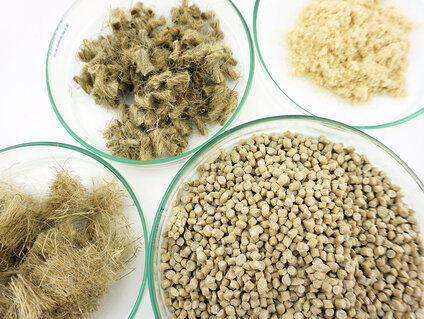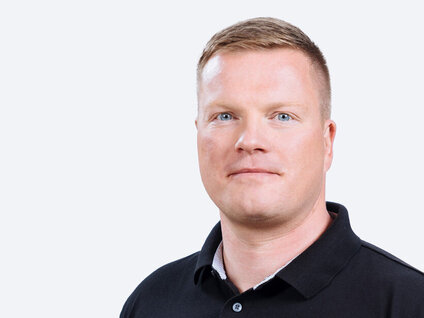SLS and FDM printing
The project focuses on the one hand on the recycling and upcycling of printing waste from selective laser sintering (SLS), specifically PA12 waste powder, and on the other hand on support structures and misprints from fused deposition modeling (FDM) printing. Here, the main focus is on PLA as well as its reuse in the form of filaments in FDM printing. For the provision of high-quality filaments, an upcycling of the used plastic is realized in the project. Chain shorteners and antioxidants for PA12 waste powder (high molecular weight) as well as chain extenders, hydrolysis stabilizers and antioxidants for PLA are being investigated for the qualitative upgrading of the plastic. Development products from specialty chemical manufacturers, among others, are used here. The desired recycling of 3D printing waste must be given attention not only from the point of view of the circular economy, but also from an economic point of view, since material costs (PLA filament: €25 to €30/kg; PA12 powder: €80 to €120/kg) represent the largest item in 3D printing operating costs. High material costs are offset by high waste rates in SLS (50 to 70%) and FDM printing (20 to 30%).
Material combinations for industrial manufacturing
In addition, the project aims to generate SLS-FDM as well as FDM material combinations from printing waste. The motivation for this can be seen in the recent development of the 3D printing field. While in the past additive manufacturing has mainly focused on the production of prototypes, there is now a clear trend towards the industrial production of real and functional components in small and medium quantities. As a result, the demand for application-optimized 3D printing materials will ultimately also increase, which will be provided by material combinations, among other things.
Project phases
The project is divided into two phases: 1. investigations into plastic upcycling and generation and characterization of material combinations using virgin materials, 2. generation and characterization of material combinations from printing waste.
Interested 3D printing companies, filament manufacturers, compounders and specialty chemical producers are invited to participate in the project (duration until 06/2022).
Contact
Christoph Thieroff
0341 4941 608 | thieroffnoSpam@kuz-leipzig.de







